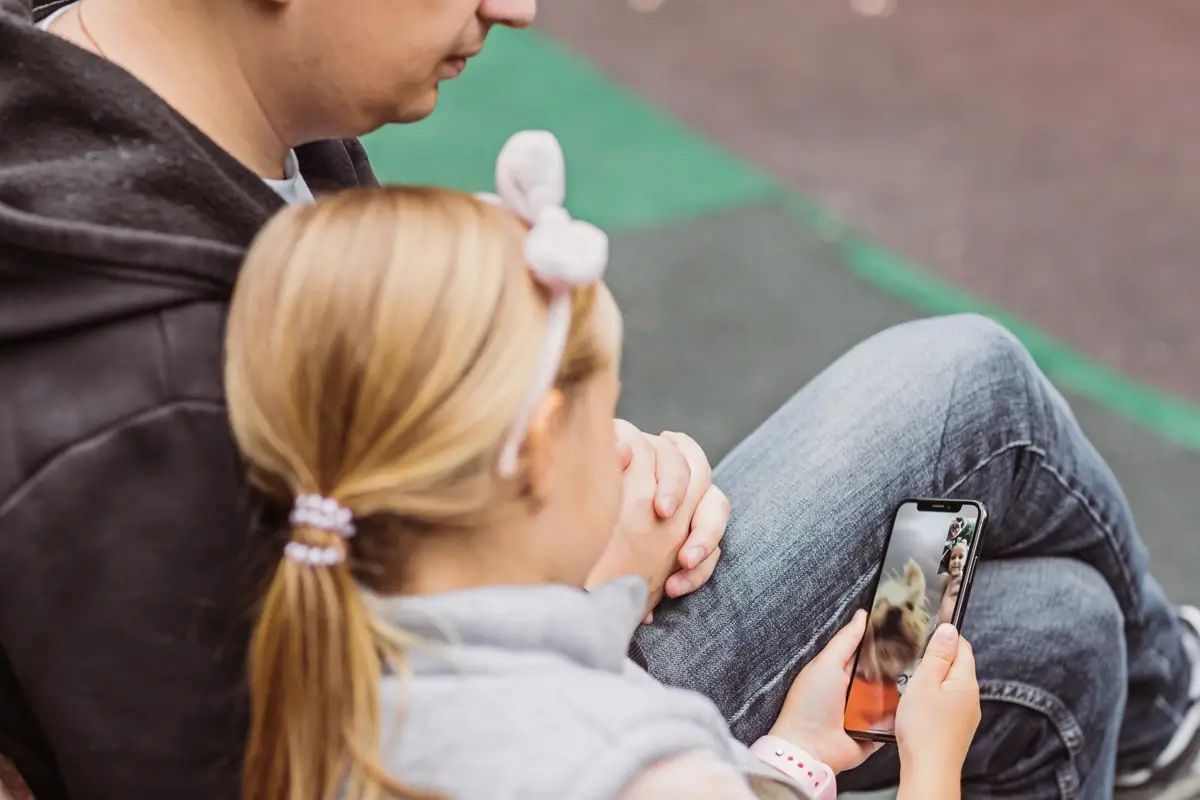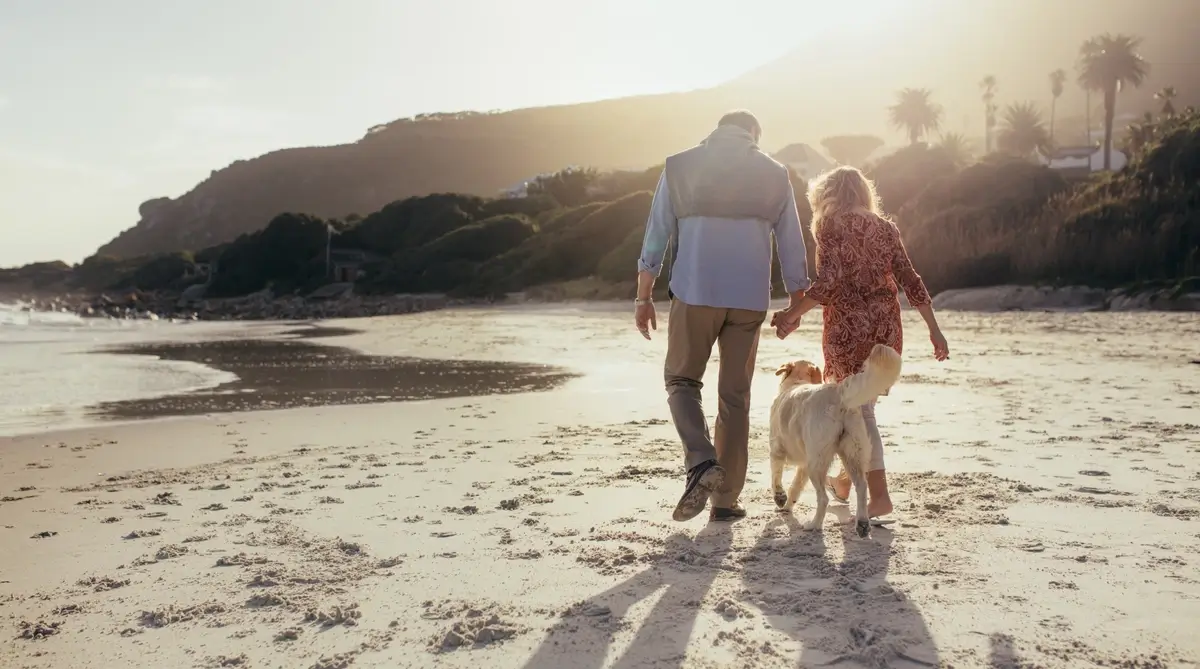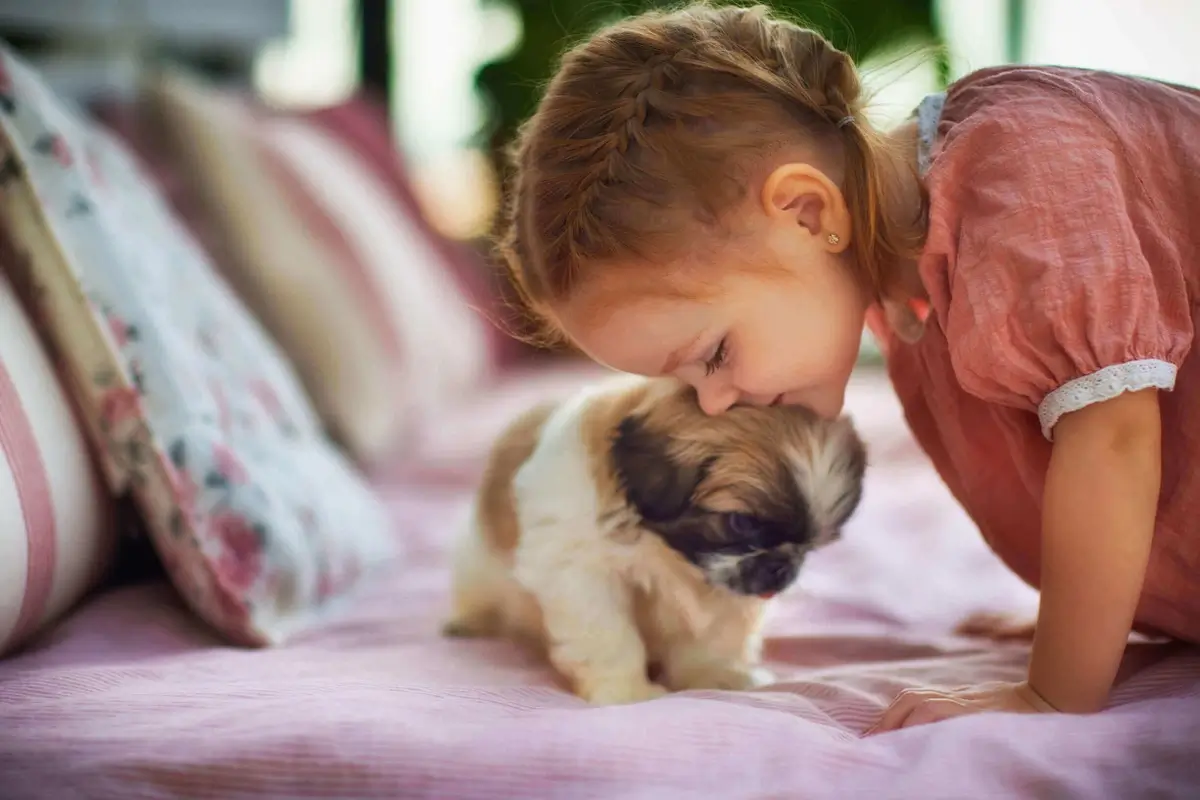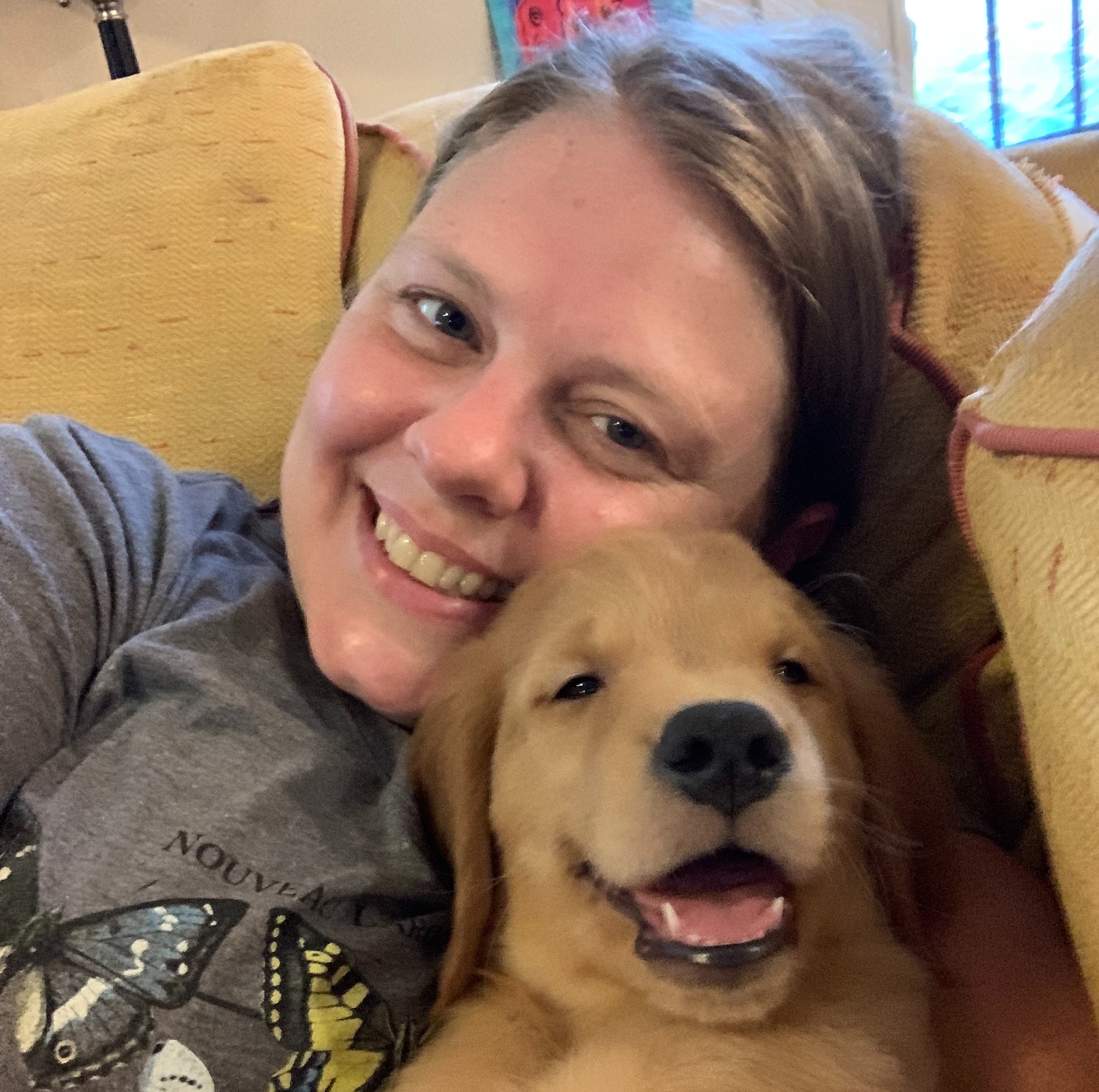Picture this – you’re at work finishing up some TPS reports when you hear a commotion. You turn around, and your coworker is holding the cutest wiggly puppy in her arms. This Corgi baby has permission to be the office mascot for the day. You love how he zips around and comes up to nuzzle you for pats for being such a good boy! “That’s it, I want a dog!” you whisper to yourself on the way to the water cooler.
Perhaps you’re scrolling through social media and notice lots of your friends with young kids have gotten a dog recently. They look so happy receiving all those puppy kisses. “Wow!” you think. “How nice would it be if my kids grew up with their own loyal furry companion?”
Or maybe your roommates have been trying to convince you to get a dog for months, and you feel the timing might actually be right. You’ve asked yourself, “Should I get a dog? Am I ready for a puppy? You know what? I want a puppy! Let’s do this!”
Deciding on adopting a puppy is one thing, but how do you know if you are ready to get a puppy when the time comes to pick one out and bring home your squirming bundle of joy? No one can answer the question, "Am I ready for a puppy?" but yourself. Here are some questions to ask yourself to help you see if you’re ready to get a puppy.
10 Questions to Ask Yourself If You’re Ready For a Puppy
Here is a quick “getting ready for a puppy” checklist to ensure that you’re in the right mindset to give a small, adorable ball of fun a furever home:
1. Do I have the time for a puppy?
While you may be musing over the idea of a new puppy, you may be forgetting one of the most important things you need when taking care of an animal: time.
Puppy ownership requires a ton of time and energy. Most new puppy parents truly underestimate the sheer amount of time a puppy requires. They have a vague sense of their duties, but they don’t quite understand until they go through it themselves. You have set aside time for long walks, potty training, and playtime.
If you think you’re busy now, wait until after you add a puppy to the mix! New puppy owners will need to carve out time and think carefully about their existing schedules to ensure they can fit in the necessary care and effort in raising a puppy. You will have to wake up early every single day (or someone in your household will) to let the dog out and feed him. For some of you, this is no big deal. For others, waking up consistently on your dog’s natural schedule will be a huge lifestyle change!
A puppy requires time-sensitive, routine maintenance. Here are some activities that will require your time when you’re wondering what to consider before bringing home a puppy:
- Regular vet visits (driving to and from, actual appt. time)
- Training sessions (Are your weekends free? Will you go after work?)
- Grooming needs, whether it’s at a business or at home
- Regular eating schedule
- Bathroom breaks at least twice a day when older and as frequently as every 30 min. when younger
- Daily play and exercise sessions
- Cleaning! Oh, the cleaning! Messes, hair, furniture, floors, toys
- Personal reflection – owning a puppy can be overwhelming, and setting aside regular, uninterrupted quiet time to recharge is a great idea.
2. Do I understand getting a puppy is a lifelong commitment?
A puppy is not something you casually return if it’s not “working out.” You have an obligation to that puppy’s quality of life, and that could be 7-15+ years. Yes, the first few years are going to be difficult and require more patience than you knew you were capable of!
Are you ready to change your own behaviors and thought processes to always be a responsible dog owner? For example, you cannot give up if your dog won’t follow the Sit command after three tries. Likewise, you cannot take out your anger on your innocent puppy when (not if!) they have accidents on your furniture or chew your Nike Air Jordan 1s.
You will have to change the way you approach life at a puppy’s pace rather than following your own agenda. Your puppy is depending on you for better or for worse, especially in those “for worse” times to be a source of comfort, reliability, and love.
3. Is my home set up for a puppy to live comfortably?
One of the most important parts of learning how to get ready for a puppy is getting your space set up. You may be wondering how to prepare your home for a puppy. Please know that most of what you assume will happen will go right out the window when your puppy arrives home for the first time!
Take as much time as necessary to prepare your home to be a safe, inviting space to raise a puppy. Readying your home will definitely take more than one day; in fact, it may take weeks. Puppy-proofing the inside and outside of your home needs to be taken seriously for the safety of your puppy and for your sanity!
As a new puppy parent, taking the time to prepare your home for a new puppy is one of the most important steps so that both you and your new canine friend will have a comfortable and safe living environment.
By making your home puppy-proof, you can help your puppy adjust to its new surroundings and set him or her up for a happy and healthy life with their new family.
4. Am I financially secure enough to afford a puppy?
Buying a dog is like taking a marriage vow when you commit to “for richer, for poorer, in sickness and in health.” The expenses a puppy brings do not end after your initial purchase. In fact, you’ve just begun pulling out your wallet for the next 7-15 or so years! Here are some areas to consider for how to financially prepare for a puppy.
Dog health care
The very first thing you must budget for is dog health care. As a pet owner, you’ll be going on vet visits and have your puppy on a regular vaccination, deworming, flea, tick, and heartworm prevention schedule. If your breed needs to be put under for regular, necessary dental cleaning, you’ll need to think about those extra costs as well.
Consider pet insurance and understand what the policy does and doesn’t cover. You have to budget for emergencies! Whether your puppy scarfed down an entire bag of chocolate chips to a case of sudden bloat in large dog breeds, emergency care has to happen quickly no matter the cost. From your breed research, you’ll find out common health problems so you can prevent conditions or catch any signs early on.
Don’t skimp on high-quality food! Proper nutrition also plays a huge role in your puppy’s overall health, growth, and development.
Grooming requirements
Some breeds require professional grooming every 6-8 weeks, and for breeds like Poodle mixes, grooming sessions may cost more due to their coat. Cutting your dog’s nails may cost $15-20, or you could learn how to groom your dog yourself to save some money. Neglecting to keep up with regular grooming can turn into costly and painful problems.
Toys and accessories
The best part of how to get ready for a new puppy is buying toys, toys, and more toys! It’s so easy to drop a pretty penny on all the cute toys and accessories money can buy, spending more on your puppy than you do yourself! If you buy cheap toys that get destroyed in seconds, you’ll need to find more durable, sturdier toys that may cost a bit extra. However, the Yorkshire Terrier puppy for sale you have your eye on does not need 15 tiny sweaters and raincoats.
Boarding and pet-sitting costs
When you’re not able to take your puppy with you during travel, you’ll need to find a safe, reliable person or facility to board your pet that also fits your budget. Some facilities will have extra perks, like pool time or grooming services attached. You may want to hire a dog walker if you’re gone several hours a day. If you use a service, be prepared to pay membership or service fees. And of course, never wait till the last minute since places book early, and always have a few backup plans at the ready.
Surprising expenses
Some other seemingly random expenses you might not think about are things like keeping well-stocked, non-toxic pet cleaning supplies at the ready, paying a pet deposit fee or increase in rent, needing a special vacuum to remove any shedding hair (hundreds of dollars), building a fence (a few thousand dollars), or even buying a larger vehicle to transport your growing Great Dane or Saint Bernard (more than a few thousand dollars)! Oh, and don’t forget the couch your pup destroyed or replacing pieces of clothing that may now have little holes from razor-sharp puppy teeth!
5. Have I done my research on the breed I think I want?
Before you allow your heart to be set on a specific breed because they are cute or your neighbor’s sister’s grandma says they’re “good dogs,” you must do your own thorough research on the breed first.
A quick internet search will show you basic facts about the breed’s characteristics, activity level, grooming needs, training requirements, associated costs, and health conditions with the breed. However, it’s best to then get a list of questions to ask a dog breeder before buying a puppy to make sure the breed fits your lifestyle.
6. What kind of lifestyle do I actually lead (not what kind I want to have)?
Think about the lifestyle you have right now v. the one you ideally keep for yourself. Asking yourself some tough questions about the life you currently live is immensely important when deciding if you’re ready to buy a puppy.
7. What is my personal activity level?
When determining your personal activity level, you have to be completely honest and real with yourself when thinking about if you’re ready for a new puppy. It’s best to get a dog that matches your level of daily activity that you’re consistently used to, not get a dog for the person you hope to be one day.
We all want to think of ourselves as ready to run a marathon in the morning and go on a long hike in the evening. However, there’s fantasy and then reality! Don’t ever use a puppy as an excuse to change something hypothetical about yourself because it’s simply not fair to your new puppy.
For example, if you think getting a high-energy dog will force you to get fit due to all the daily activity they require, it’s usually a terrible idea because what if you never adapt your lifestyle to meet the needs of your active puppy despite your good intentions? Likewise, if you love to hike but choose a breed that is more interested in stealing your seat on the couch and your popcorn while you try to watch a movie, you may get frustrated not being able to take your companion with you to watch the sunset from the peak of the mountain.
8. Am I gone a lot, or will I take my puppy with me when traveling?
If you have a job that requires you to travel frequently, it is probably not the right time for you to get a puppy. However, if you’re able to take your puppy with you, that also requires preparation to pull off a successful trip. Either way, examine your travel schedule to see if you’re at home more than you are away.
Another factor you may examine is if you are home a lot during the day or leave the house to work. You’ll need to be prepared to deal with separation anxiety in puppies because some breeds will get very destructive if left alone for long periods of time.
9. Do I tend to follow routines, or am I more spontaneous?
There are dogs that thrive on a strict routine, and others are more go-with-the-flow. Is the dog breed you chose known for being adaptable, or will it act out if there are too many schedule changes? Will it be a stretch for you if too many bumps in the road mess up your established routine, or will you feel resentful if you have to give up some spontaneity for your puppy?
10. Is this dog breed good with kids?
Whether you have babies or older kids, you’ll need to know if the breed you have selected is a good companion for kids of any age. Some dog breeds that are great with children even get the nickname of a Nanny dog because of how gentle, patient, and attentive they are with little grabbing hands and boisterous raucous. Others, while well-meaning, may be too big to be around little children and need extra supervision not to knock over the kids.
If you do have a breed that does well with children, it’s important not to get lazy and assume things will work themselves out. Don’t treat your dog like an additional sibling; rather, make sure your puppy gets the proper socialization needed for any breed, and always be vigilant when dogs are around children.
In contrast, there are some breeds that just do not tolerate the fun chaos that kids can bring. These breeds would do better without children present. It’s crucial to maintain an environment conducive to a peaceful puppy lifestyle. It’s so sad to see dogs rehomed because a family did not do their research properly.
Pawrade Can Help Answer Questions You May Have About Being Ready For a Puppy
We fully understand that owning a puppy for sale is not a decision made lightly and is a serious, lifelong responsibility. So, while you soul search for the answer to “Am I ready for a puppy,” we’ll do all the hard work of finding a reputable, trustworthy breeder for you. This way, you can concentrate on getting ready for a puppy. Contact a Puppy Concierge today to get started on your puppy-buying journey. We’ll be here for you every step of the way.





